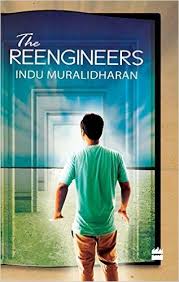Amazing
Secrets of the Bhagavad Gita by ED Viswanathan has a catchy title.
When I read the author’s bio, I thought that this book is going to
offer me some new insights about the Gita. But this book just aims to
cash in on the popularity of the Gita.
The
book is not about the Gita. The author does not appear to have
studied the Gita or done any serious research about it. He just wrote
whatever he wanted to write and sold it under the garb of the Gita.
Abortion, homosexuality, Sati, menstruation have nothing to do with
the Gita. They don’t even find any mention in the holy book. Yet
the author devotes chapters to each of these topics. There is no harm
in discussing these issues. But selling it under the name of the
Gita is certainly misleading.
The
author attributes Lord Krishna saying in Mahabharata that
non-violence is the ultimate Dhrama. So too violence is in service of
Dharma. This jihadic interpretation of the verses is dangerous.
Having
said that let me tell you what I liked about the book. The author
says that Hinduism never forbids anyone from criticizing it.
Unfortunately this unique aspect of the ancient religion appears
to be forgotten
in today’s modern times. Not even one Hindu has been banished or
killed because he or she preached against the Vedas or made fun of
the God. Through this book I learnt about Charvaka school in
Hinduism, which did not accept the authority of the Vedas and which
believed in materialism. The author also tells us that according to
Sankhya school life on the earth is not a miracle worked by God but a
creative process that passes through different phases of change and
transformation. The author also claims that the order of the Dasa
Avatars tallies with Darwin’s theory of evolution.
I
also liked what the author has to say about salvation. He says the
Bhagwad Gita asserts that salvation is for everybody. The only
difference between people is the time salvation will take. The best
among us will attain it in one lifetime and the worst will attain it
only after many lives. The author also states that Hinduism does not
glorify poverty. The author says that once you step on the ladder of
spirituality you will only go forward, never backward. With regard to
the references regarding caste and women in the Gita, the author says
that Veda Vyasa has stated the prevailing beliefs of that time. Again
the author makes a highly controversial statement by saying that Veda
Vyasa has written the Gita.
You
may like few concepts set out in the book. But this book is not about
the Bhagwad Gita and it does not reveal any secret. So don’t judge
this book by its cover.










